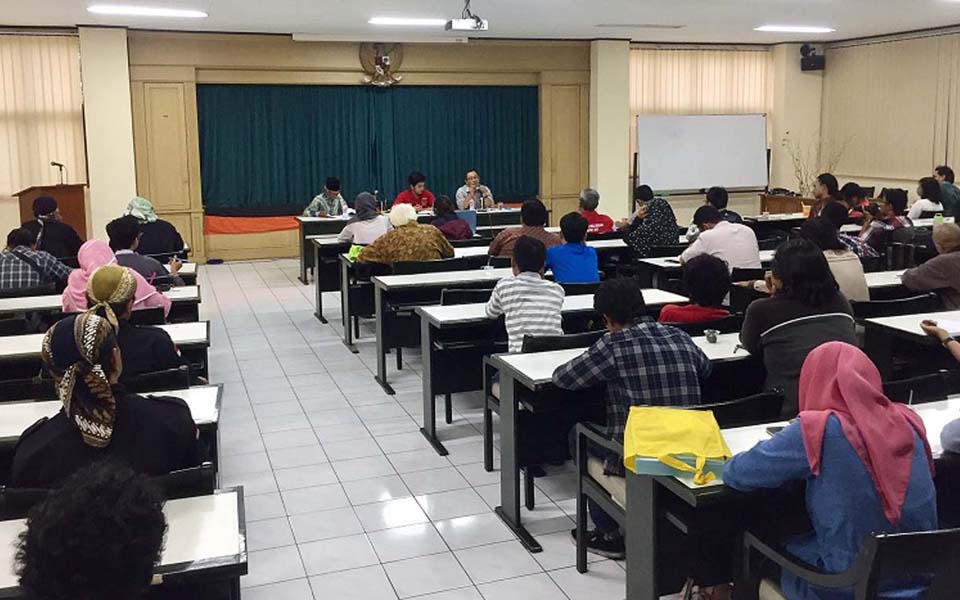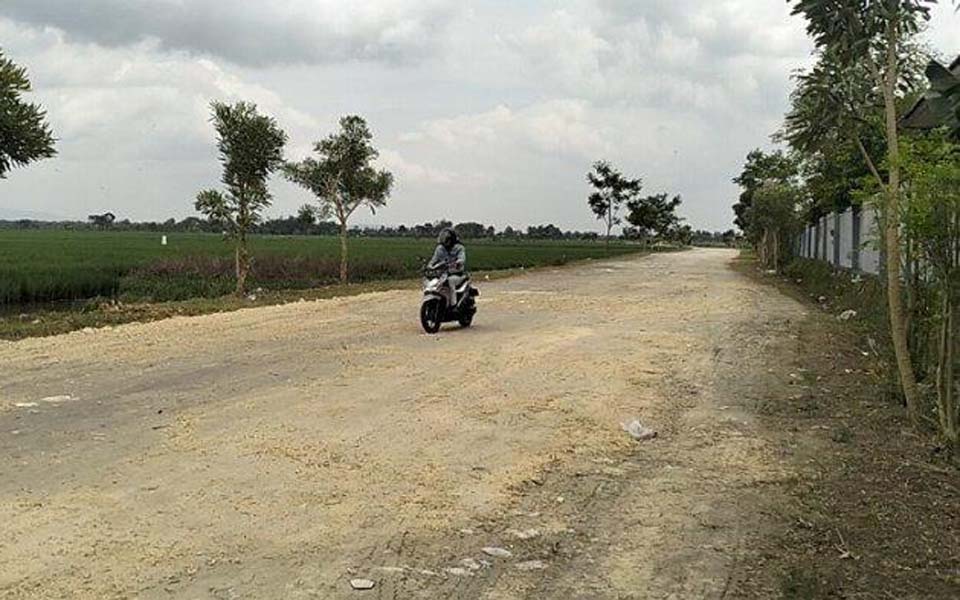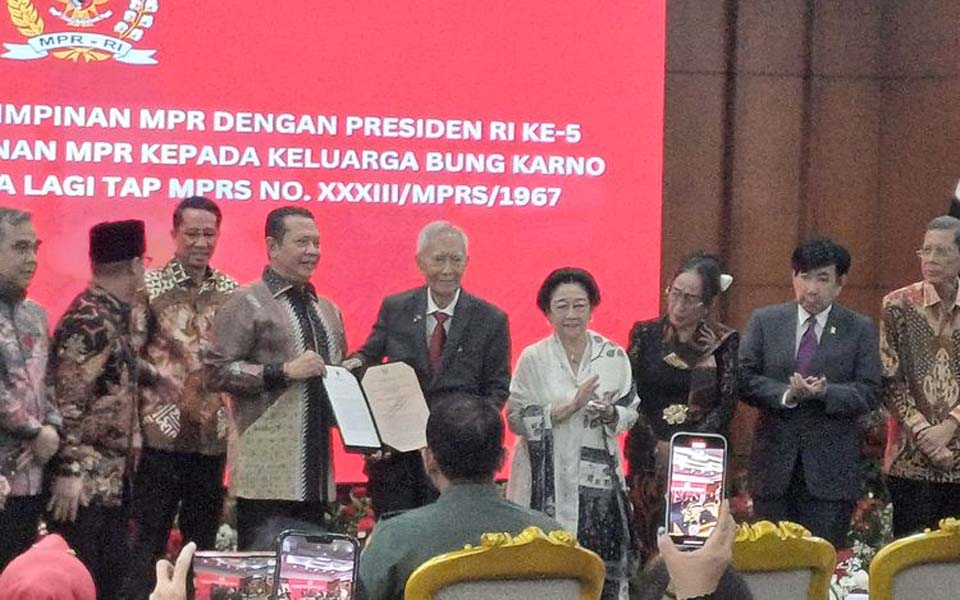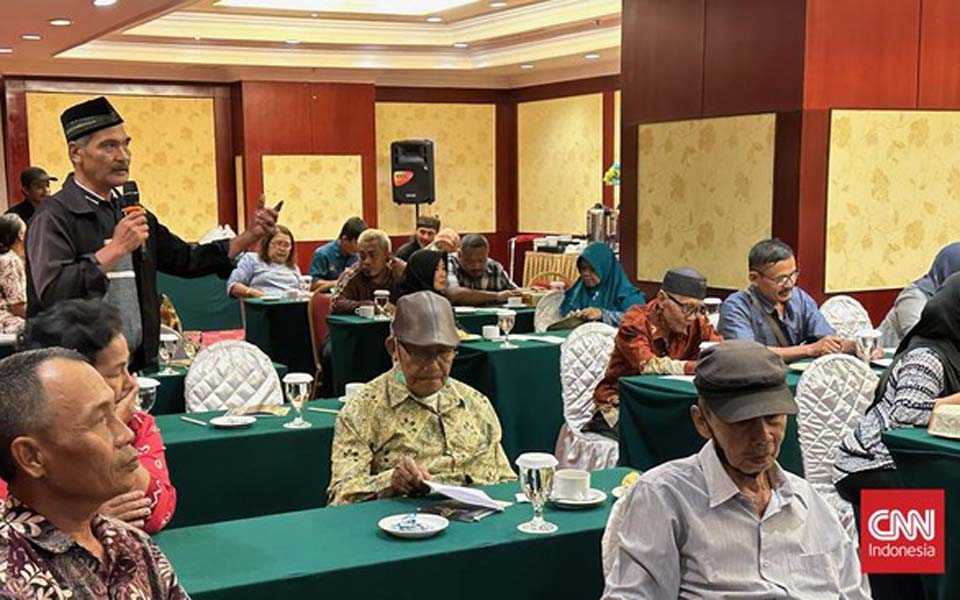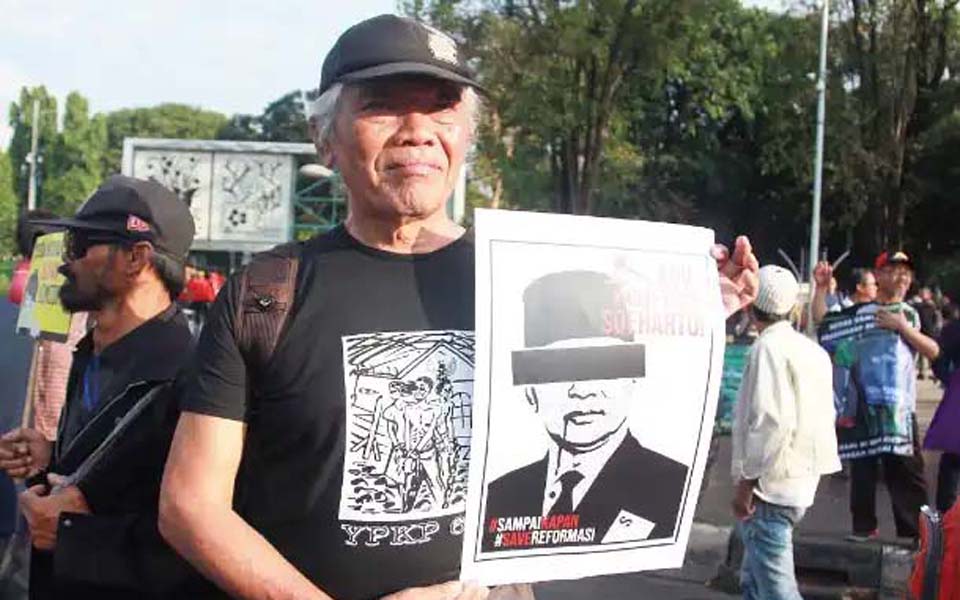Yogya – An event organised by the MAP Corner-Klub MKP in the lobby of the Public Administration Master’s Program at Gadjah Mada University (UGM) in the Central Java city of Yogyakarta proceeded in an unexpected manner on Tuesday October 4.
Taking up the theme the 1965 1st October Movement (Gestok), the discussion, which presented Institute for the Study of the 1965-1966 Massacres (YPKP 65) researcher Badri, was not only joined by students but also scores of people from a social organisation calling itself the Red and White Element (EMP).
The discussion did in fact largely focus on political and economic policies post-1965, which as it turned out, brought with it long-term effects that are still being felt to this day. The period of transition from Indonesia’s founding president Sukarno to the New Order dictatorship of former President Suharto, including foreign economic policy, was of particular focus during the discussion.
“We experienced advances compared with the years before 1965, but there were policies that slowly came to be realised, namely the mounting foreign debt. As consequence of the massive [debt] we then suffered the monitory crisis (krismon) and runaway inflation with the rupiah dropping from 2,500 rupiah per US dollar to 10,000”, said Budiawan, an UGM post-graduate lecture in cultural and media studies.
Several political policies also muzzled freedom of expression such as the emasculation of women’s organisations and the neutralisation of non-government organisations simply because they were deemed to be part of a marginal grouping.
“Post Gerwani [Indonesian Communist Party affiliated women’s organisation] there was only Dharma Wanita [a state-sanctioned organisation for civil servants’ wives] which was centrist and not considered progressive, so indirectly it could be seen that the aspirations of women were muzzled”, he said.
The discussion became heated during the questions and answers session when a representative of EMP questioned the reasons behind inviting a researcher from YPKP 65. The EMP even demanded that the PKI [Indonesian Communist Party] apologise for what happened in 1965, which has been blamed on the party with the symbol of the hammer-and-sickle.
Badri however remained quite clam saying that the party no longer exists so there is no one who can make an apology. “The PKI no longer exists, [its leader] Aidit is dead so there isn’t anyone who can apologise”, said Badri. (Fxh)
Notes
At a cabinet meeting on October 9, 1965, Indonesia’s founding president Sukarno insisted that the 30 September Movement (G30S) -- a group of middle-ranking military officers who kidnapped and killed six generals they accused of organising a coup against Sukarno -- be called Gestok (Gerakan Satu Oktober, 1st October Movement) since the movement’s radio announcement was made on the afternoon of October 1. The army-controlled media however ignored him calling the movement Gestapu (a reference to the Gestapo, the Nazi secret police) and blamed the incident on the Indonesian Communist Party, which Suharto and the military used as a pretext to mount a bloody counter-revolution in which as many as 1 million communists and left wing sympathisers were killed.
[Translated by James Balowski for the Indoleft News Service. The original title of the report was Ormas ‘Kawal’ Diskusi Gestok 65.]
Source: http://krjogja.com/web/news/read/11600/Ormas_Kawal_Diskusi_Gestok_65





